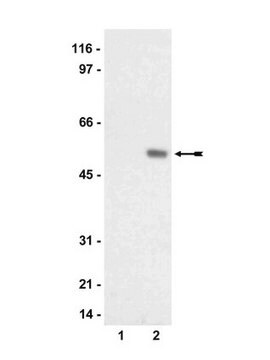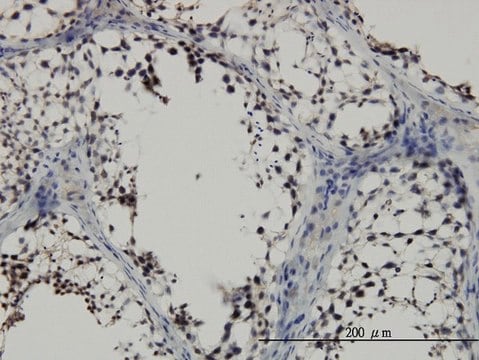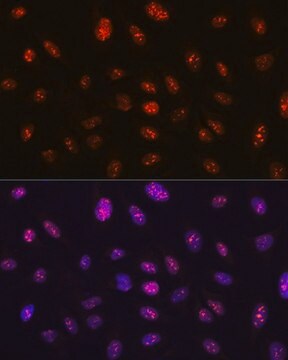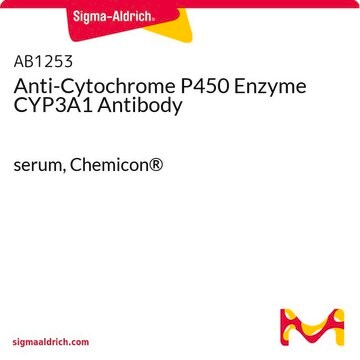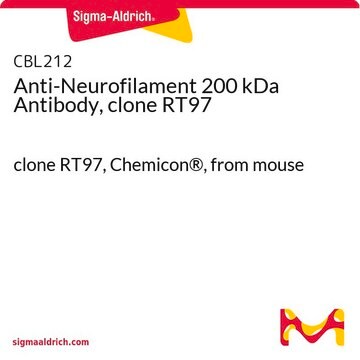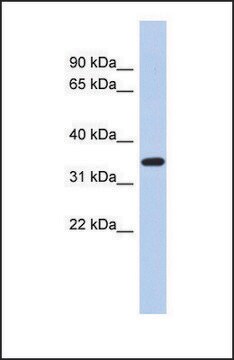MABN119
Anti-KLF6 Antibody, clone 12A8.3
clone 12A8.3, from mouse
Sinónimos:
Krueppel-like factor 6, B-cell-derived protein 1, Core promoter element-binding protein, GC-rich sites-binding factor GBF, Proto-oncogene BCD1, Suppressor of tumorigenicity 12 protein, Transcription factor Zf9
About This Item
Productos recomendados
biological source
mouse
Quality Level
antibody form
purified immunoglobulin
antibody product type
primary antibodies
clone
12A8.3, monoclonal
species reactivity
mouse, human
technique(s)
immunohistochemistry: suitable
western blot: suitable
isotype
IgG2bκ
NCBI accession no.
UniProt accession no.
shipped in
wet ice
target post-translational modification
unmodified
Gene Information
human ... KLF6(1316)
Categorías relacionadas
General description
Immunogen
Application
Neuroscience
Developmental Signaling
Immunohistochemistry Analysis: A 1:200 dilution from a representative lot detected KLF6 in human placenta tissue.
Quality
Western Blotting Analysis: 0.5 µg/mL of this antibody detected KLF6 in 10 µg of NIH-3T3 cell lysate.
Target description
Physical form
Storage and Stability
Analysis Note
NIH-3T3 cell lysate
Other Notes
Disclaimer
¿No encuentra el producto adecuado?
Pruebe nuestro Herramienta de selección de productos.
Storage Class
12 - Non Combustible Liquids
wgk_germany
WGK 1
flash_point_f
Not applicable
flash_point_c
Not applicable
Certificados de análisis (COA)
Busque Certificados de análisis (COA) introduciendo el número de lote del producto. Los números de lote se encuentran en la etiqueta del producto después de las palabras «Lot» o «Batch»
¿Ya tiene este producto?
Encuentre la documentación para los productos que ha comprado recientemente en la Biblioteca de documentos.
Nuestro equipo de científicos tiene experiencia en todas las áreas de investigación: Ciencias de la vida, Ciencia de los materiales, Síntesis química, Cromatografía, Analítica y muchas otras.
Póngase en contacto con el Servicio técnico